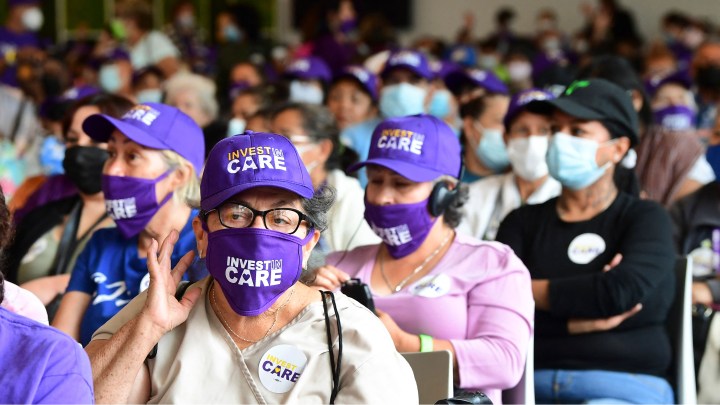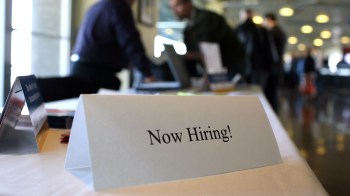
Most home care workers are entitled to overtime but might not know it
Most home care workers are entitled to overtime but might not know it

The pandemic has made clear how essential caregiving is to people’s lives and to the economy. Yet the people who do this work are often paid low wages and denied basic protections.
The U.S. Department of Labor is aiming to address some of these concerns for home-based health care workers with the launch of a new initiative to increase outreach, education and enforcement around care workers’ rights, like minimum wage and overtime.
There are about 2.3 million home-based personal and health care workers assisting seniors and people with disabilities in the U.S. The workforce is almost 90% women, nearly two-thirds women of color, and one-third are immigrants. They make an average of $13 an hour, according to Lul Tesfai, senior policy adviser with New America.
“Nearly half of all home care workers live in a low-income household, and 1 of 6 workers lives below the federal poverty line,” she said.
The workers can be hired through state-run registries, private agencies or often just informal networks, said Los Angeles-based employment attorney Emil Davtyan.
“It’s just commonplace for workers to get abused because they get paid by cash a lot of times,” he said.
Like most domestic workers, home care aides had historically been excluded from federal job protections, like overtime pay, under the Fair Labor Standards Act. However, the Barack Obama administration moved to include them in 2015.
Actually applying the law can be challenging, said Caitlin Connolly with the National Employment Law Project.
“Many times, workers are going directly to people’s homes and aren’t in fact meeting at a central workplace talking with other co-workers,” she said.
It’s also not always clear who the employer responsible is when workers are hired jointly by an individual but paid through an agency. That’s why outreach efforts need to target all groups, said the Department of Labor’s Jessica Looman.
“We’re doing an employer association-focused outreach. We are doing outreach for advocates who represent these types of workers,” she said, “which includes a series of webinars and listening sessions, public service announcements and posters in your local bodega.”
Last fiscal year, the division recovered more than $38 million in back wages for health care industry workers.
There’s a lot happening in the world. Through it all, Marketplace is here for you.
You rely on Marketplace to break down the world’s events and tell you how it affects you in a fact-based, approachable way. We rely on your financial support to keep making that possible.
Your donation today powers the independent journalism that you rely on. For just $5/month, you can help sustain Marketplace so we can keep reporting on the things that matter to you.


















